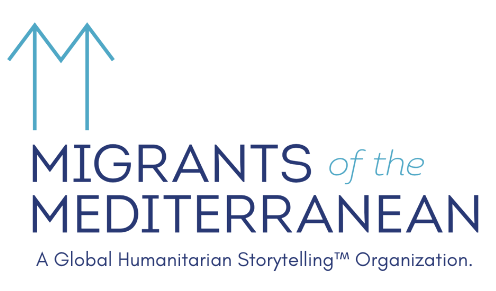Meet Abdul Mohammed Ali
Abdul Mohammed Ali at his COA housing in Middelburg, Netherlands. 21 June 2021. ©Pamela Kerpius/Migrants of the Mediterranean
by
Pamela Kerpius
Recorded:
21 June 2021
Published:
16 September 2021
Meet Abdul Mohammed Ali.
From Mogadishu, Somalia. To reach The Netherlands he crossed four countries: Somalia, Saudi Arabia, France and Belgium.
He was four months old when he left Somalia in 1995. He and his family flew by plane to Saudi Arabia where he lived until he was about 13. He completed his maximum amount of public schooling at 12-years-old, then worked for about one year in a shop with his family. To continue his education he would have to leave the Saudi system.
His father knew a trafficker that could bring Abdul to Europe, and he paid an unknown amount of money (Abdul guesses thousands of euros) for a transfer to Paris, France. In November 2009 Abdul left the Middle East and crossed Europe by plane using the passport of the trafficker’s son.
He was alone with the trafficker. His parents promised to come to Europe later. He thought they would come in a week, then a month, but nothing.
“When I came here it was a new world,” Abdul said.
He landed in Paris, France then transferred to Strasbourg where he remained for three years. His trafficker was supposed to help him with his asylum claim, but in the end Abdul was left to deal with it – or in this case, not – on his own. He was a minor, 13-years-old.
He was not allowed to go to school. Sometimes, he was not allowed to even go outside. It was too risky for the trafficker who kept him in his home, in the event Abdul was caught by the police. When Abdul was finally 16-years-old he had had enough. He wanted his own life and education. He had a fight with the man.
He took Abdul by car to The Netherlands, handed him twenty euros at Tilburg station, and said, “Go save yourself. Go build your own life,” and Abdul was suddenly on his own in another foreign country, where he did not speak either the native language, Dutch, or English. He had just turned 17.
“When I came here
it was a new world.”
In France, he began to learn English, but still really only spoke French and Arabic. He found a woman who spoke French who guided him to the local police station the next day. He claimed his asylum there. They took his fingerprints. He sat in a glass room for his processing. There were Afghans and other Somalis there. He waited in holding for two days.
“I experienced more in that short time than in three years in France,” Abdul said.
He took a train for three hours to Ter Apel, where new immigration claims are sent in The Netherlands. There was a mix of adults and young, underage immigrants among him. He stayed in Ter Apel for just half of the day. Then, he was moved to the underage COA housing camp in Wageningen. Adults lived upstairs at the camp, minors downstairs. He shared a room with three others, including a Somali he traveled with, but he said, who he otherwise had nothing in common with. He stayed in this housing camp for three months.
His family never stopped trying to reach the trafficker, but eventually the man blocked his dad’s phone. Abdul’s parents told him to be strong. He was angry about that. He was just 17. This was hard to do alone.
He had interviews with Dutch immigration case workers. They never found his trafficker either, but after about three months they granted him a five-year stay permit in The Netherlands. School and work were finally possible. He moved to new housing in Leeuwaarden. There were twenty others living with him, with two people per bedroom. He stayed for 9 months, until just before his eighteenth birthday.
When he left, he was given 1,200 euros to reestablish himself. He moved into a home he shared with friends. He had his own room for the first time. It was a new construction. There was even a yard. He said a lot of people he knows have PTSD. It was hard for him to make his life as he has done it here alone, but he is grateful that he was brought to The Netherlands.
Years later, he lost his job at a restaurant and then his home, and his papers expired. He would have been eligible for a passport after five years, but because he did not have an address to claim, he didn’t get it.
His family returned to Somalia in 2014 when their documents were denied renewal in Saudi Arabia. He brother was shot in the heart and killed when they returned. Everyone carries guns there, Abdul said.
He returned to Ter Apel in the summer of 2020 to re-claim his asylum, a process he started over from scratch because his documents fell past expiry. Delays from the coronavirus slowed things down further, adding another six months to the asylum process.
Separately, Abdul wondered, as our conversation strayed off, if we had seen the movies The Curious Case of Benjamin Button and The Pursuit of Happyness – because those are his favorites. He is 26 years of age now and living in Middelburg, Netherlands, where we recorded this story on 21 June 2021.
Abdul Mohammed Ali is an amazing human being.

